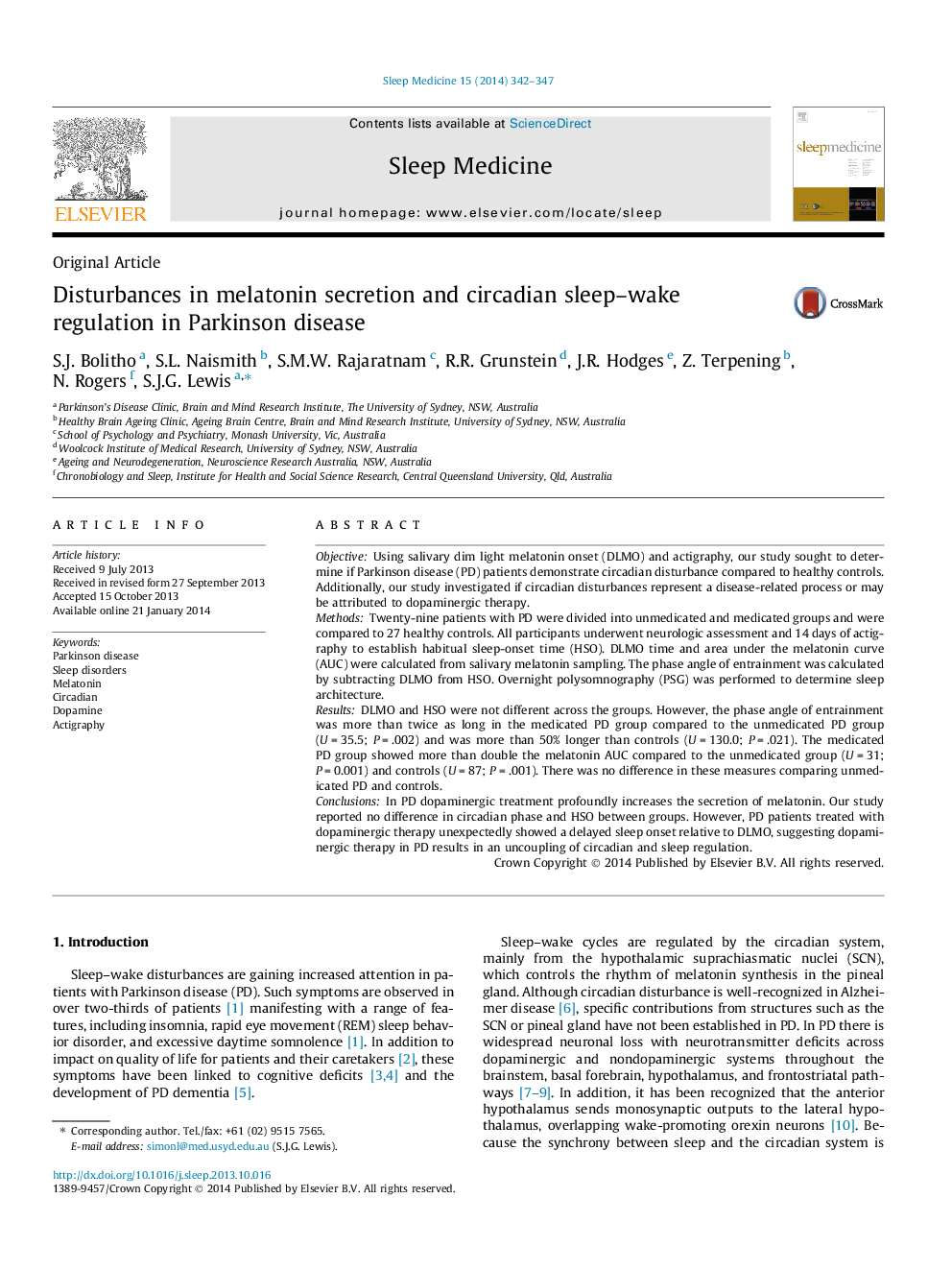| Article ID | Journal | Published Year | Pages | File Type |
|---|---|---|---|---|
| 6060994 | Sleep Medicine | 2014 | 6 Pages |
â¢We assessed circadian sleep disturbance in Parkinson disease (PD).â¢The role of dopaminergic therapy in circadian disturbance was reported.â¢Melatonin secretion was increased by dopaminergic treatment in PD.â¢Dopaminergic therapy in PD resulted in uncoupling of circadian and sleep regulation.
ObjectiveUsing salivary dim light melatonin onset (DLMO) and actigraphy, our study sought to determine if Parkinson disease (PD) patients demonstrate circadian disturbance compared to healthy controls. Additionally, our study investigated if circadian disturbances represent a disease-related process or may be attributed to dopaminergic therapy.MethodsTwenty-nine patients with PD were divided into unmedicated and medicated groups and were compared to 27 healthy controls. All participants underwent neurologic assessment and 14Â days of actigraphy to establish habitual sleep-onset time (HSO). DLMO time and area under the melatonin curve (AUC) were calculated from salivary melatonin sampling. The phase angle of entrainment was calculated by subtracting DLMO from HSO. Overnight polysomnography (PSG) was performed to determine sleep architecture.ResultsDLMO and HSO were not different across the groups. However, the phase angle of entrainment was more than twice as long in the medicated PD group compared to the unmedicated PD group (UÂ =Â 35.5; PÂ =Â .002) and was more than 50% longer than controls (UÂ =Â 130.0; PÂ =Â .021). The medicated PD group showed more than double the melatonin AUC compared to the unmedicated group (UÂ =Â 31; PÂ =Â 0.001) and controls (UÂ =Â 87; PÂ =Â .001). There was no difference in these measures comparing unmedicated PD and controls.ConclusionsIn PD dopaminergic treatment profoundly increases the secretion of melatonin. Our study reported no difference in circadian phase and HSO between groups. However, PD patients treated with dopaminergic therapy unexpectedly showed a delayed sleep onset relative to DLMO, suggesting dopaminergic therapy in PD results in an uncoupling of circadian and sleep regulation.
